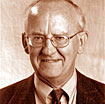Commentary on Psalm 138
The word “extreme” seems to be especially popular in the language of our day.
One hears of extreme sports, extreme programming, and there is a band with the name “Extreme.” Whatever the word means in each of these connections, “extreme” refers to something that is not bland or middle-of-the-road, but rather pushing to the limits, situated on the edges.
The Bible speaks of God in terms of extremes.
For example: God is “high above all nations” and yet is concerned about an individual poor man and childless woman (Psalm 113). God is enthroned in heaven and yet looks down on the earth’s inhabitants (Psalm 33:13). God is “high and lifted up” and yet reaches down to forgive a sinner (Isaiah 6, one of the lectionary texts for this day). God says “I dwell in the high and holy place, and also with those who are contrite and humble in spirit” (Isaiah 57:15). God is “Our Father who in heaven” who is concerned about our daily needs (Matthew 6:9-13).
To put it another way: according to the Bible, God is both transcendent (far away) and immanent (near at hand). This view of God in terms of extremes is expressed at the center of this psalm: “For though the LORD is high, he regards the lowly…” (verse 6) and also in the final two sections of the psalm that speak of God’s might (4-6a) and also his being with the individual (6b-8).
Location, Structure and Genre
Psalm 138 is the first in the final collection of eight psalms identified as “of David” in the Psalter (138-145). Psalms of thanks (138) and praise (145) frame a group of individual laments (139-144). At the heart of the Song of Thanksgiving is an account of God’s deliverance (see 30:2, 8-12; 34:4,6; 40:1-2, etc.). The account of deliverance is very short in this psalm: “On the day I called, you answered me…” (138:3). The psalm may be divided as follows: I thank you, God (1-3), This is our God (4-6), You Are With Me (7-8).
Reading the Psalm
Thank you, Lord, from the bottom of my heart! (1-3)
The psalm gets right to the point. The first word in the Hebrew text is “I thank you.” The perspective of the psalm goes to the extremes. This is no perfunctory, “Thanks, God,” but a deep “thank you from the bottom of my heart” as we might put it. And this is not a solitary word of thanks to God; the psalmist wants “all the kings of the earth” to join in with him in praising God (verse 4). What is the reason for this heartfelt thanks to God? The psalm says it very simply:
On the day I called, you answered me, you increased the strength of my soul. (3)
Songs of thanksgiving such as this one typically refer to a specific action of God for which the psalmist is thankful (see Psalm 30:6-12). But here the psalmist’s language is comprehensive, strong and simple: “I prayed, you answered” (verse 3).
This is our God (4-6)
Verse 6 gives succinct expression to the “extreme theology” that informs this psalm. The Lord is high, as high as one can imagine, even above the heavens (Psalm 113:4). The capitalized LORD indicates that the Hebrew is using the name Yahweh for God; notice that it comes up four times in this God-centered short section.
But this God is also concerned with the lowly. Again, the theologian behind this psalm thinks of God in “extreme” categories. For another example of this thinking in extreme terms, notice Psalm 22, where the psalmist speak of God as “holy, enthroned on the praises of Israel” (verse 3) and himself as “a worm, and not human.” (verse 6).
You are with me (7-8)
The picture of life as a “walk” reminds one of Psalm 23. Psalm 138:7 says: “Though I walk in the midst of trouble” and Psalm 23 reads: “Even though I walk [same verb form in Hebrew] through the darkest valley” (Psalm 23:4). The psalm comes to a conclusion as it began, with a reference to the LORD’s amazing grace or “steadfast love” (verses 8,2)
Toward a Sermon on this Psalm
The notion of God’s immanence and transcendence runs through the Bible and through both Jewish and Christian theology. The important point is that the Bible and biblical theology speak of God in terms of both immanence and transcendence. If only the immanence is stressed, one ends up with pantheism (everything is God). If transcendence is over emphasized, one can slip into deism (God is very far away and not involved in things on the earth).
One can line up lists of texts that speak of God’s might and power. At the other extreme is the Bible’s central assertion of God’s concern for humans, the earth and its creatures, in the Incarnation, God taking human form in the person of Jesus the Christ.
The challenge for the preacher/teacher is always to find fresh and effective ways of expressing immanence/transcendence. I’m suggesting that the notion of “extremes” might be helpful at this point. A sermon could run as follows:
I. Introduction: Extreme language in our day.
Here would be some examples from current vocabulary..
II. The Story in this Psalm
Wholehearted thanks (1-3)
Comment on Psalm 138 as a Song of Thanksgiving and compare with a few of these, such as Psalms 30, 34, 40, 66. Focus here on the strong and clear statement in verse 3.
This is Our God (4-6)
Develop the immanence/transcendence themes expressed in verse 6 without using that language!
You Are With Me (7-8)
Expand on the immanence theme, such as expressed in Psalm 23. Develop the theme of life as a walk, a journey, and the promise that God will be there at times of trouble, even in the valley of the shadow of death.

February 7, 2010